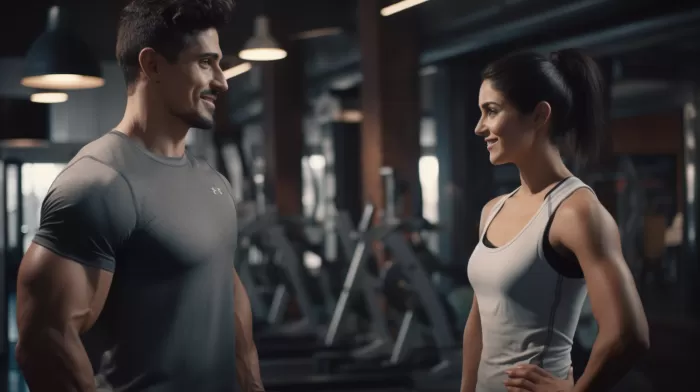So you’ve decided you want a personal trainer – that’s awesome! Before you dive into searching online, you must first know exactly who to look for and why it matters. After all, this person will help you take care of the most crucial machine – your body. It all starts with questions…
What are your qualifications?
Qualifications are vital. Ideally, you want the personal trainer who coordinates your fitness program to have a degree in Exercise Science or a related field, and a nationally accredited certification. When asking about certifications, keep in mind that there are many different ones. However, only a handful of top-tier certifications are essential: ACSM (American College of Sports Medicine), ACE (American Council on Exercise), NASM (National Academy of Sports Medicine), and NSCA (National Strength and Conditional Association).
If you have a special condition, look for someone with a Medical Exercise Specialist certification, Rehabilitation certification, or Clinical Exercise Specialist certification. It’s critical to do your due diligence, as there is an astounding array of certifications out there. The best trainers continually learn and seek credible information sources, given how quickly industry research advances.
Your needs are unique; therefore, you should look for a personal trainer who speaks your language and doesn’t impose a one-size-fits-all training philosophy on all clients. These intangible qualifications should also be on your must-have list.
How long have you been a personal trainer?
Experience is invaluable. You don’t want a novice personal trainer learning the ropes with you. Trainers fresh out of college might have some prior experience, but consider their overall knowledge and ability to adapt to your needs.
Ask if they have ever worked with someone similar to you in age, goals, or conditions. Also, inquire if they have a team of trainers they can consult with. A younger trainer with a support staff and experienced supervisor means you have a team contributing on your behalf.
How long have you been working at this business, and how long do you plan to stay?
If “until I get a real job” is an answer – run! If you hope to develop a long-term relationship with your trainer, make sure they have some longevity. Inquire about money paid in advance and whether it can be refunded if they leave.
What do you like about personal training and working here?
Beware of trainers who complain about their working environment or coworkers. Look for someone who maintains professional boundaries, stays friendly and personable, but doesn’t reveal inappropriate information about their employer or other clients.
Your trainer should focus on your health, wellness, and fitness during the session, without going off-topic. Make sure they are 100% committed to monitoring your form, technique, intensity, injury risk, and tracking your progress.
What is the cancellation policy?
Most professional personal trainers will require advance notice of cancellations to avoid forfeiting the session. This demonstrates that the trainer is serious about their work. Confirm the required notice period, often 24 hours, and ask about any benefits for canceled sessions. Some trainers may use the available time to research exercise options for you or create short video clips of at-home exercises and stretches.
What if my schedule (or yours) changes?
It’s not unusual for your needs to change over time, requiring adjustments to your training schedule. Discuss what would happen if either party’s schedule changes and how this would be handled, including being matched with another trainer or getting a refund if necessary.
Do you carry liability insurance?
While you never want to need it, liability insurance is a good indicator of whether the trainer is in business for themselves and committed to the profession. Find out if they’re covered.
Describe the process of getting started with personal training: What can I expect?
Before any physical training, there should be a thorough discussion about your goals, health, and activity history, as well as assessments of your posture, body mechanics, weight, blood pressure, measurements, and body composition. A cardiovascular assessment may also be appropriate, depending on your goals and needs.
A personalized program is crucial, so look for a trainer who treats each client with a unique approach.
Do you have references?
Ask for a list of current or prior clients, preferably similar to you, that you can contact. Follow up and ask questions as if you were interviewing a potential employee.
If possible, observe your prospective personal trainer in action. Consider whether their clients appear to be enjoying themselves while still making progress. Look for a trainer who is warm, professional, and focuses on you.
Comfortable, focused trainers who stay on-task and motivate are likely to achieve the best results. By observing a trainer in action, even if only during a complimentary session with you, it should be easy to determine whether it’s the right fit for you.



